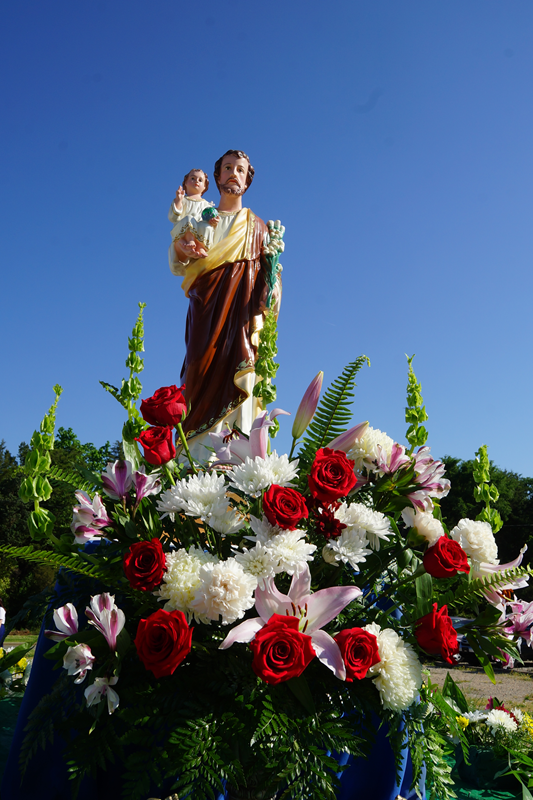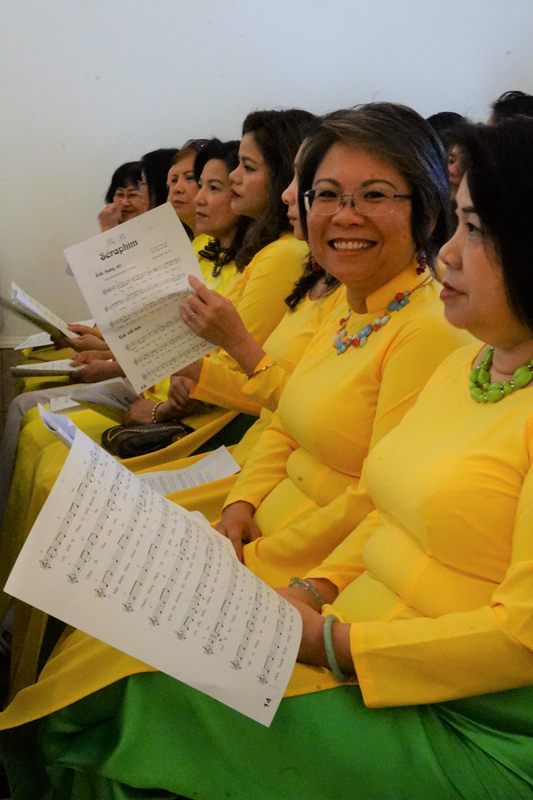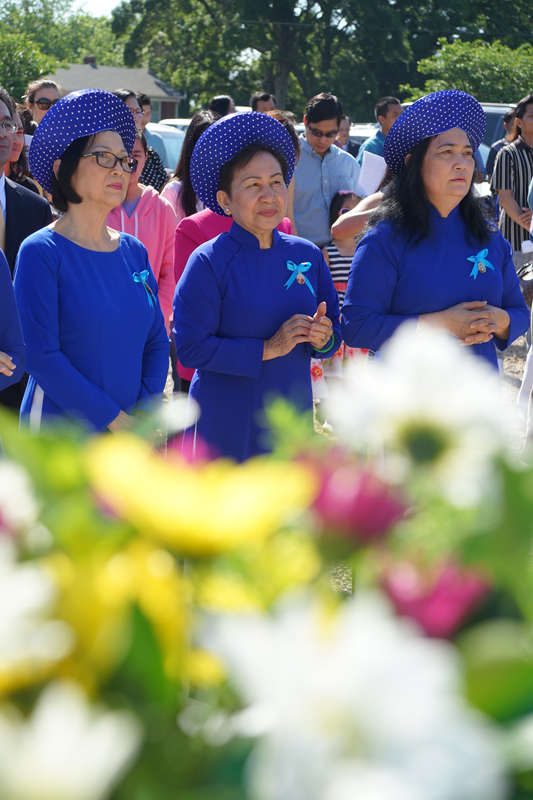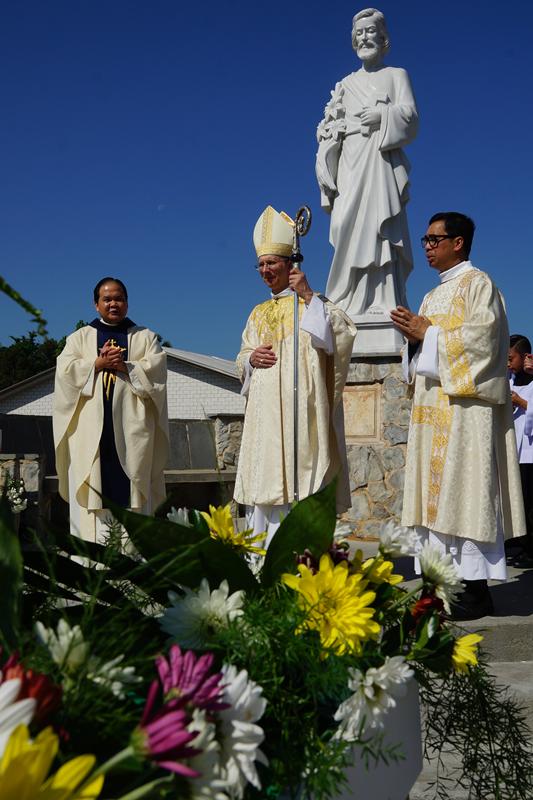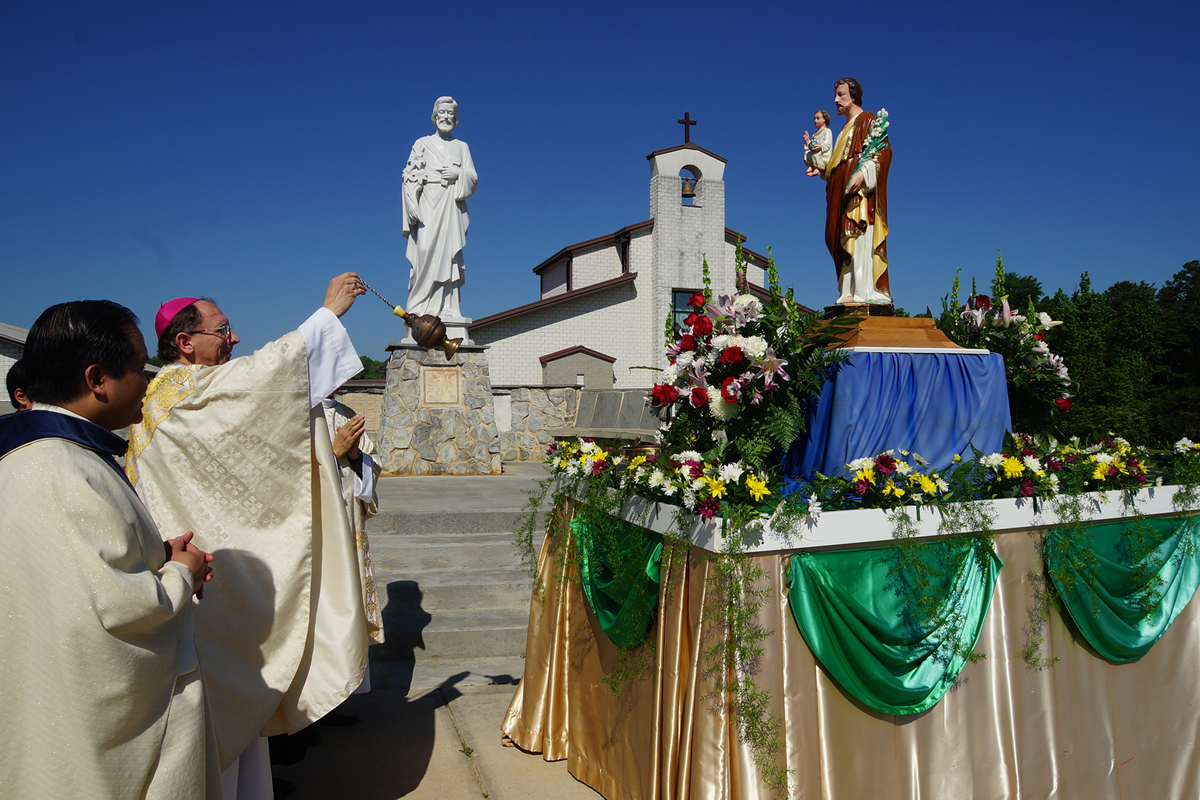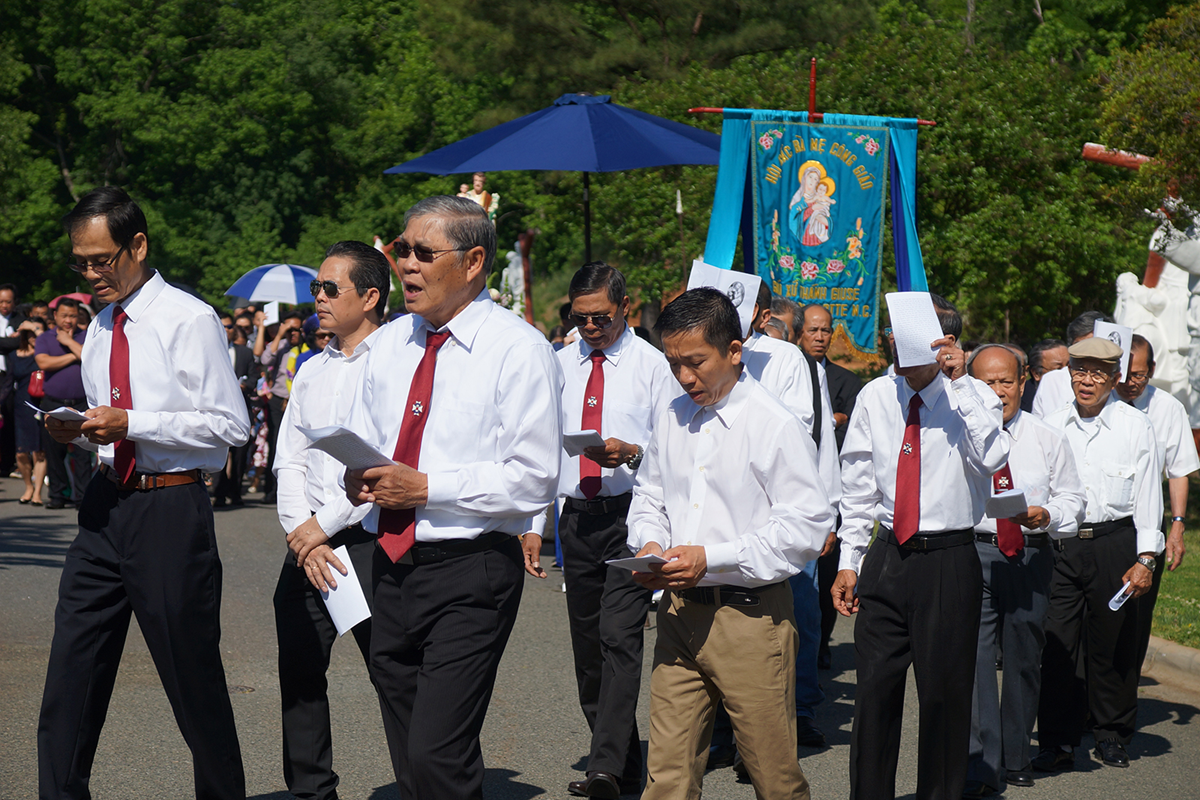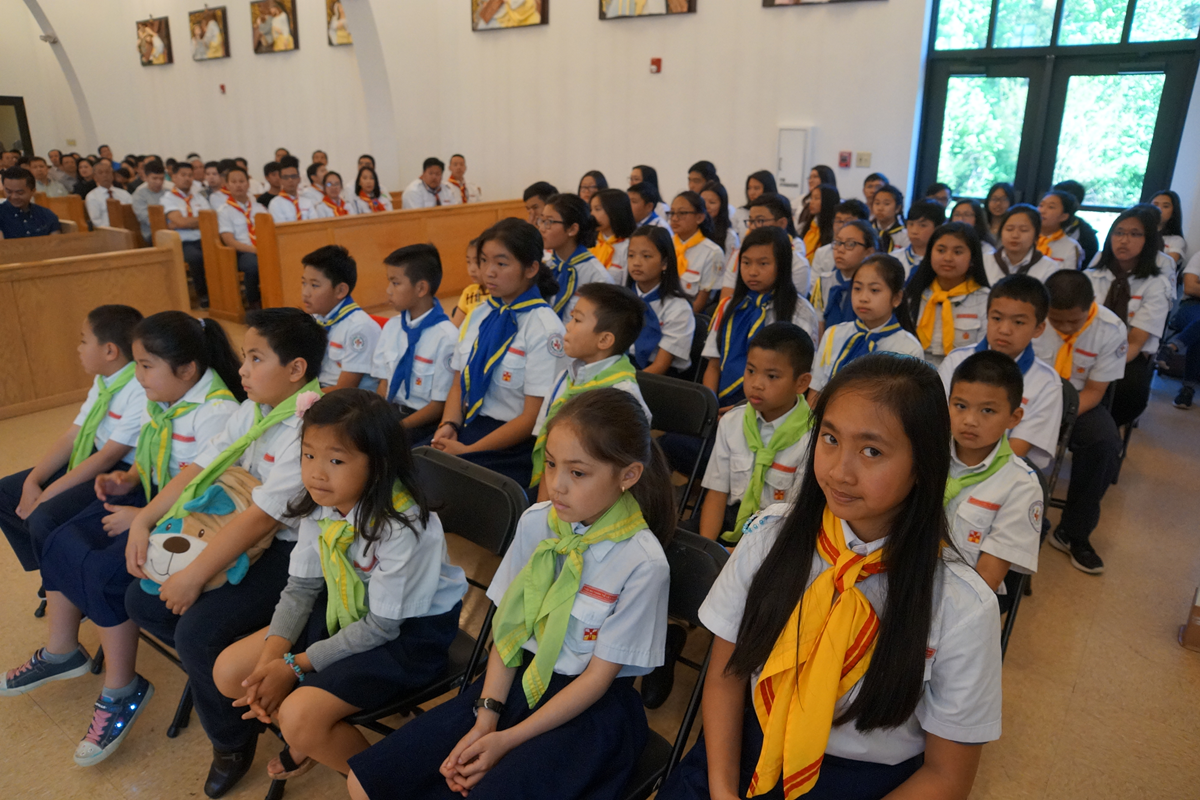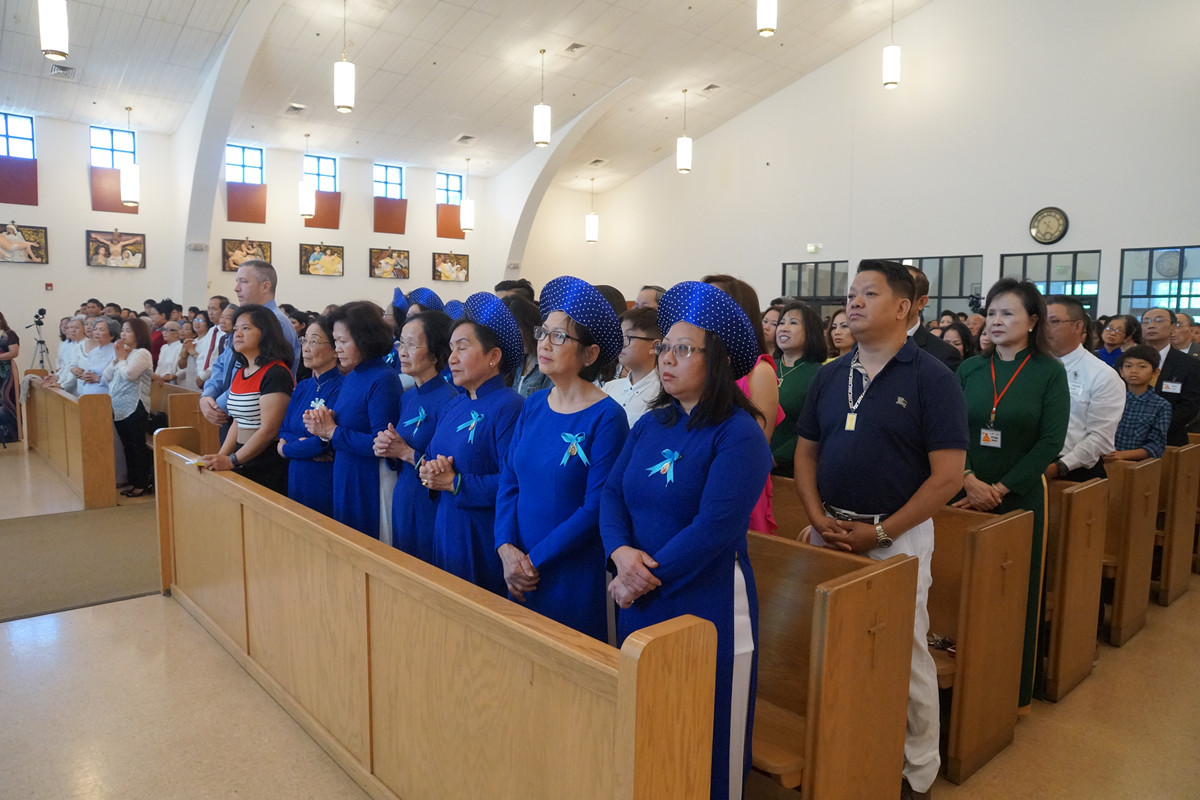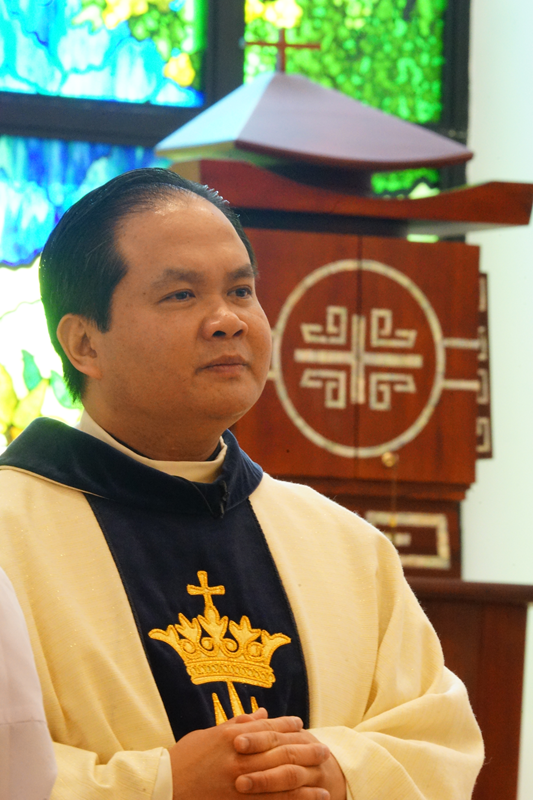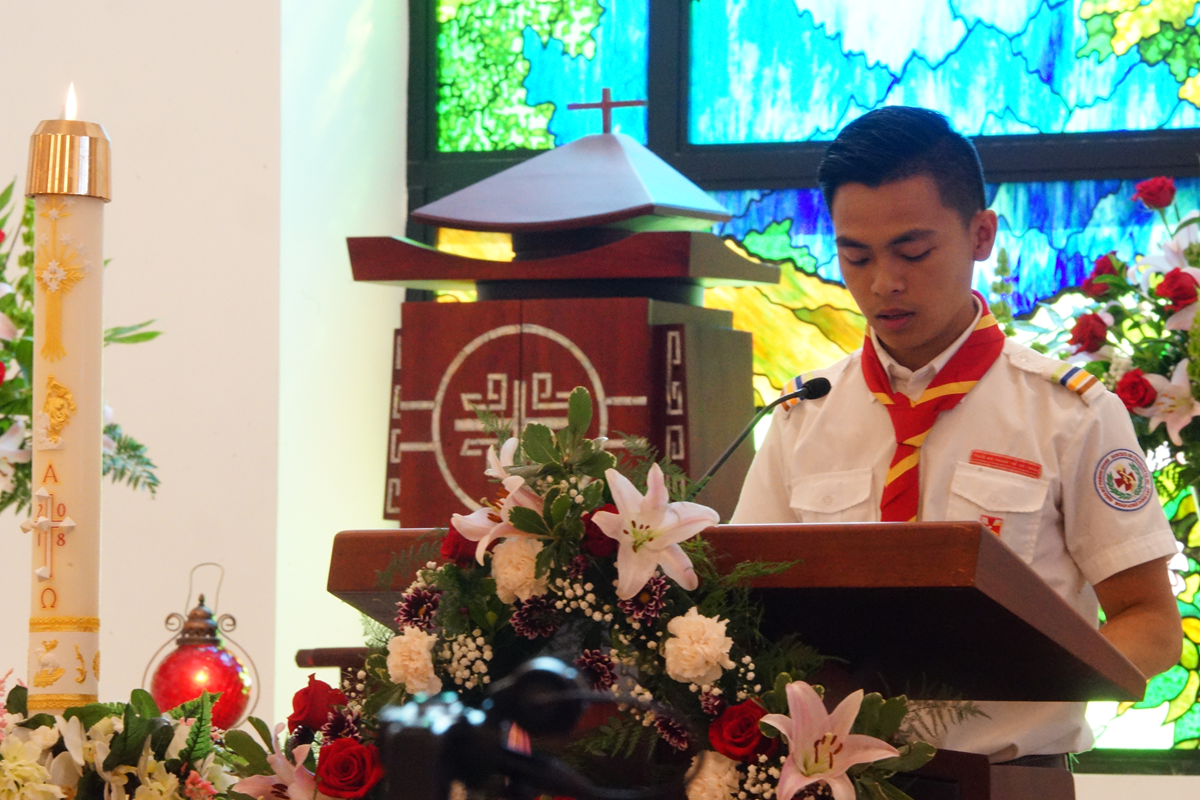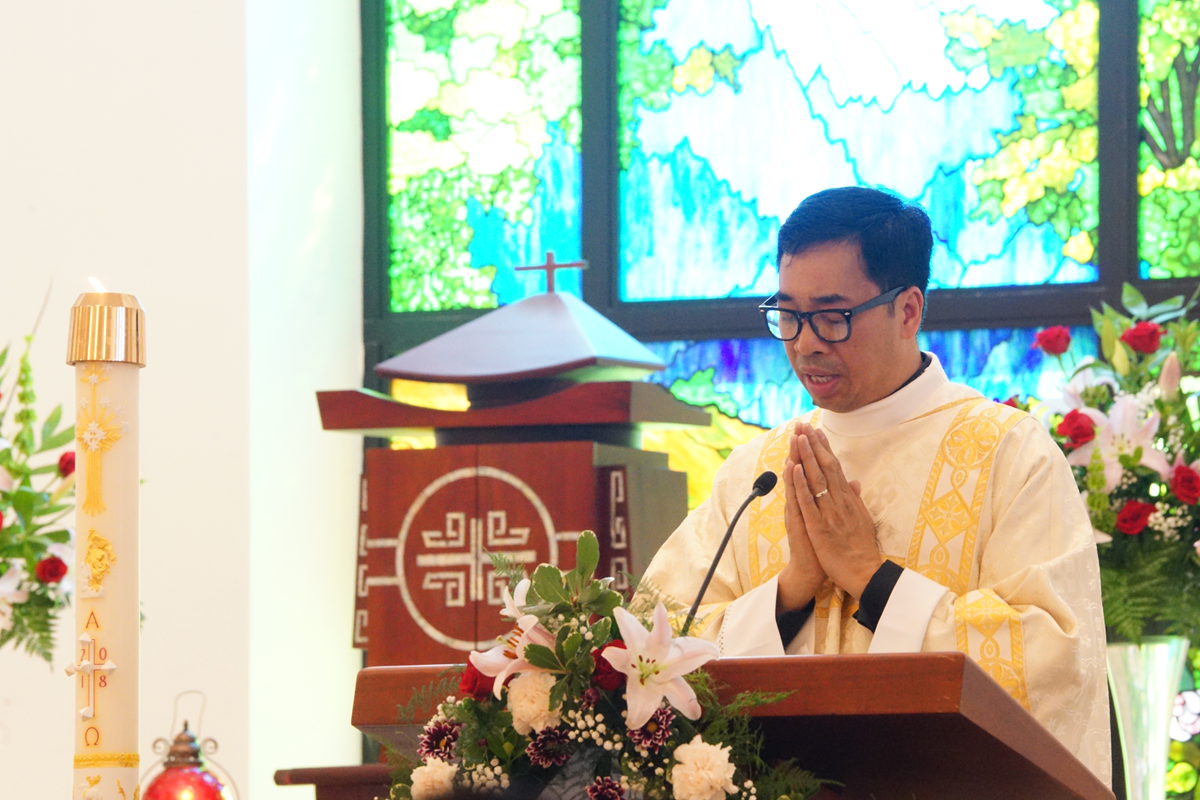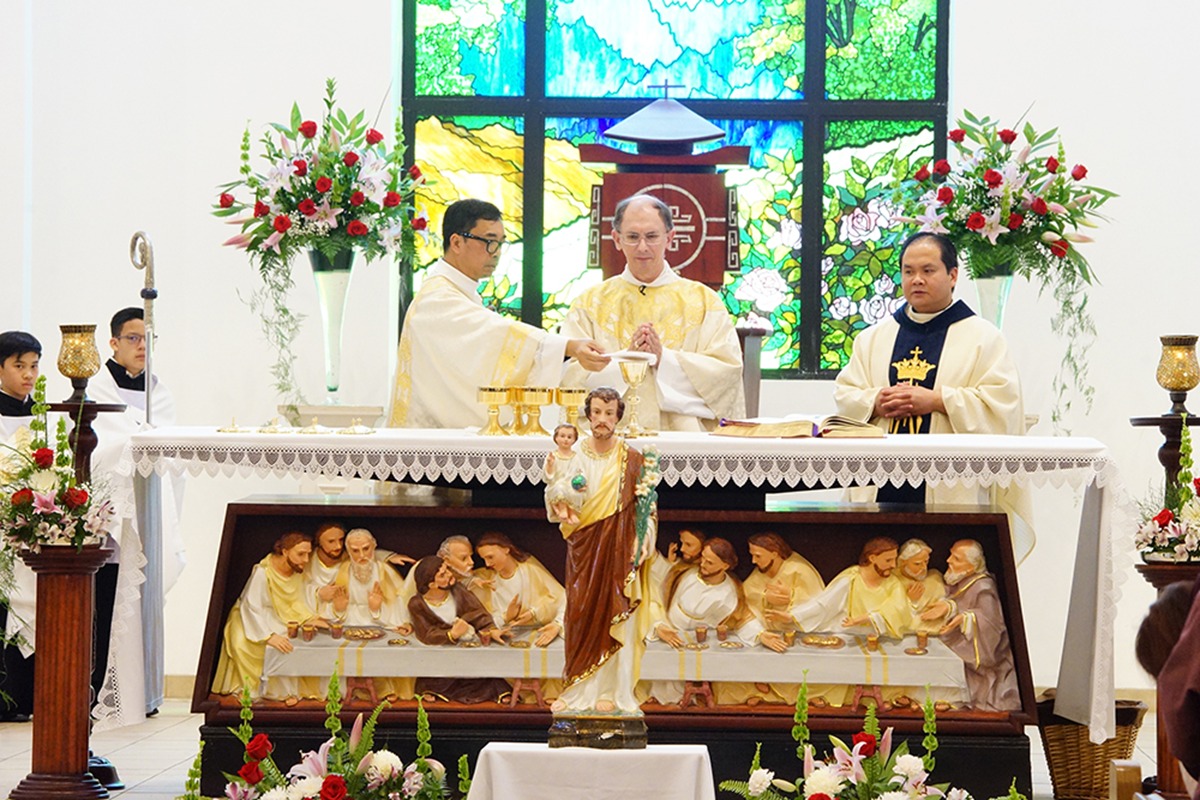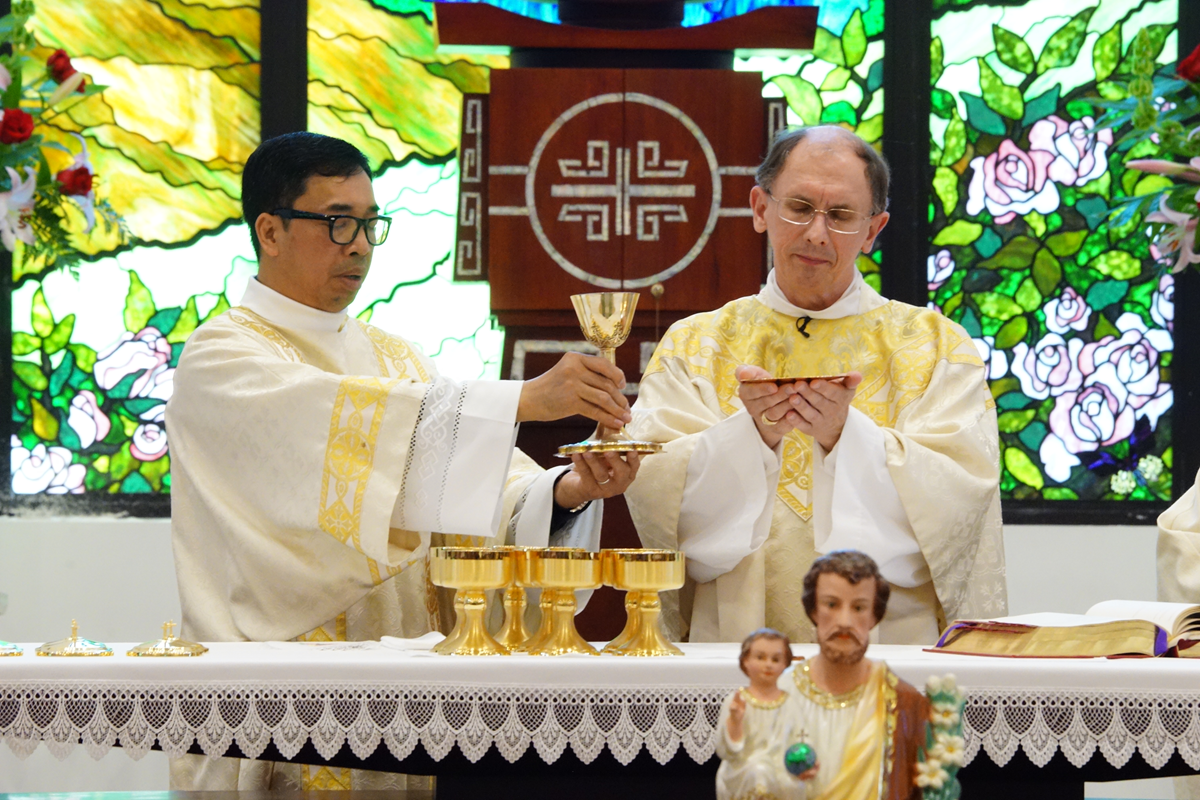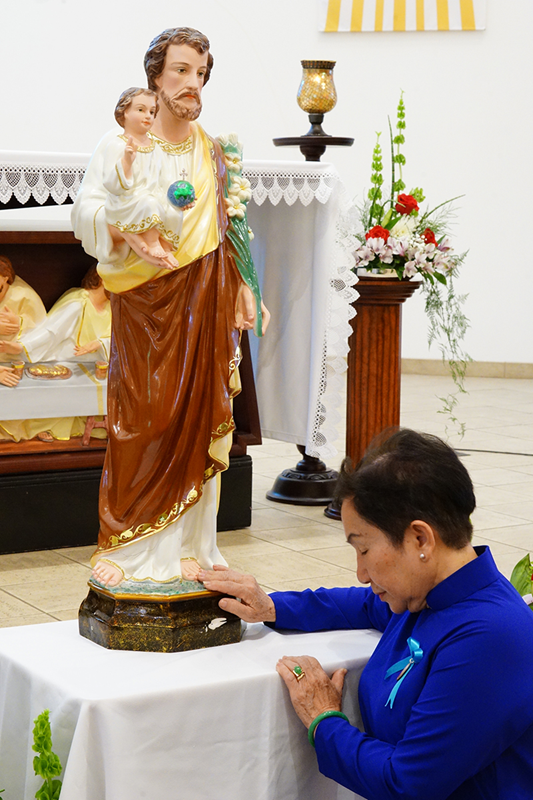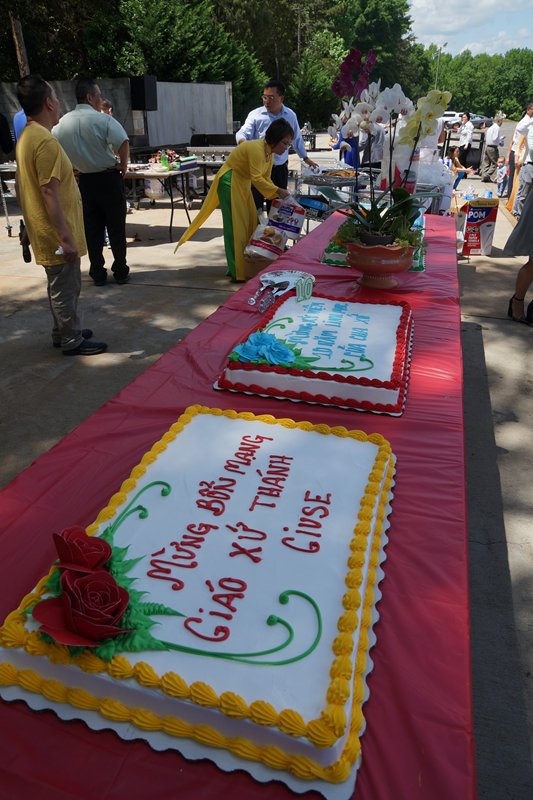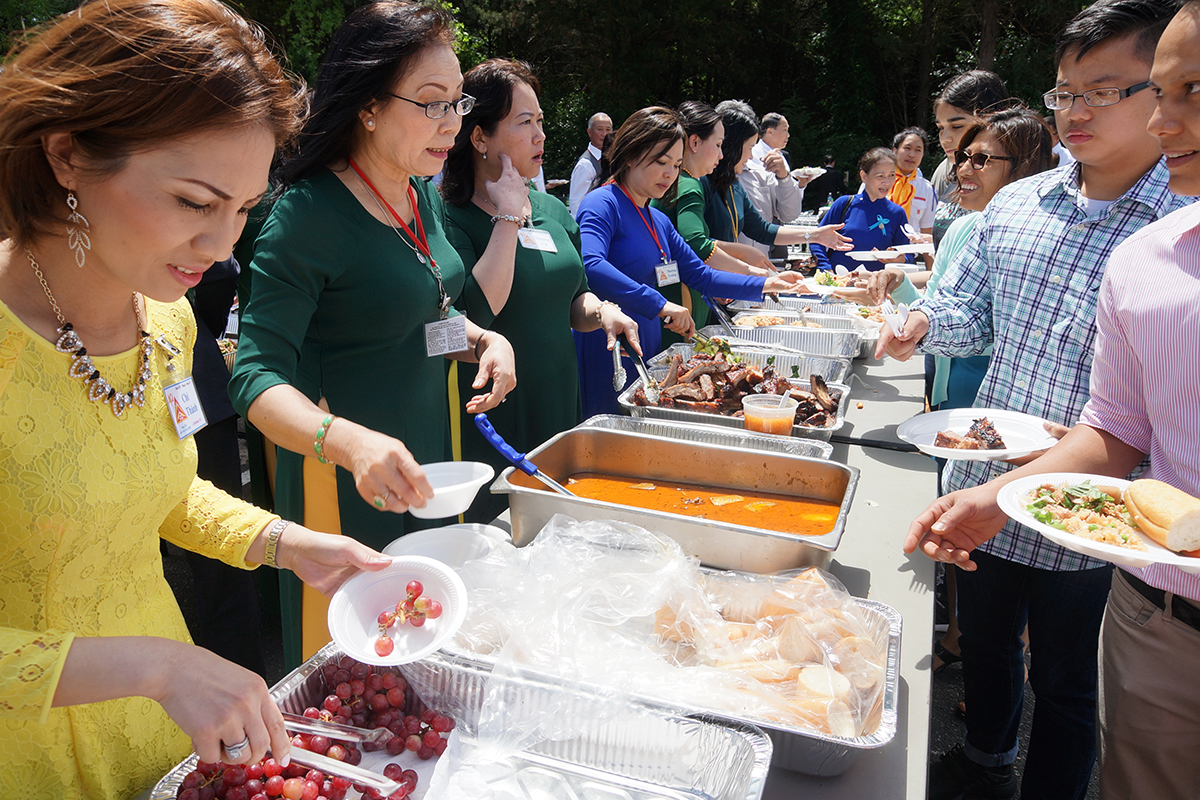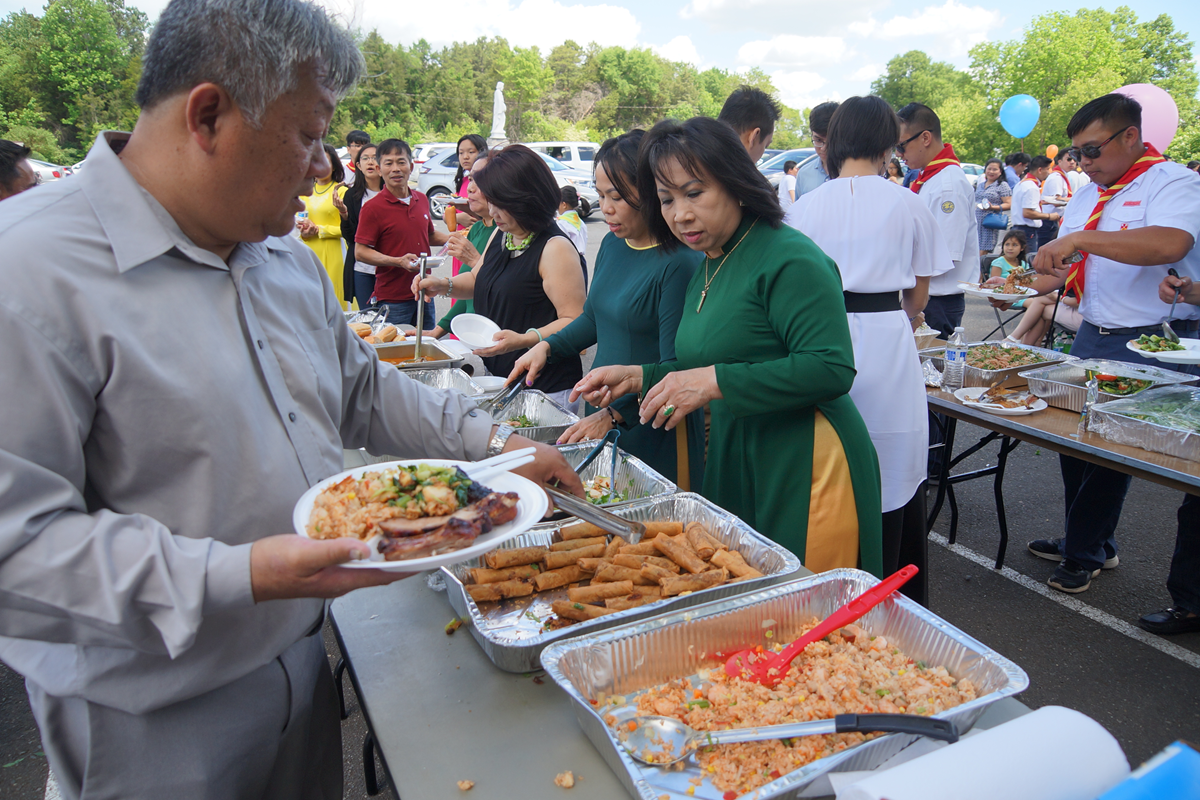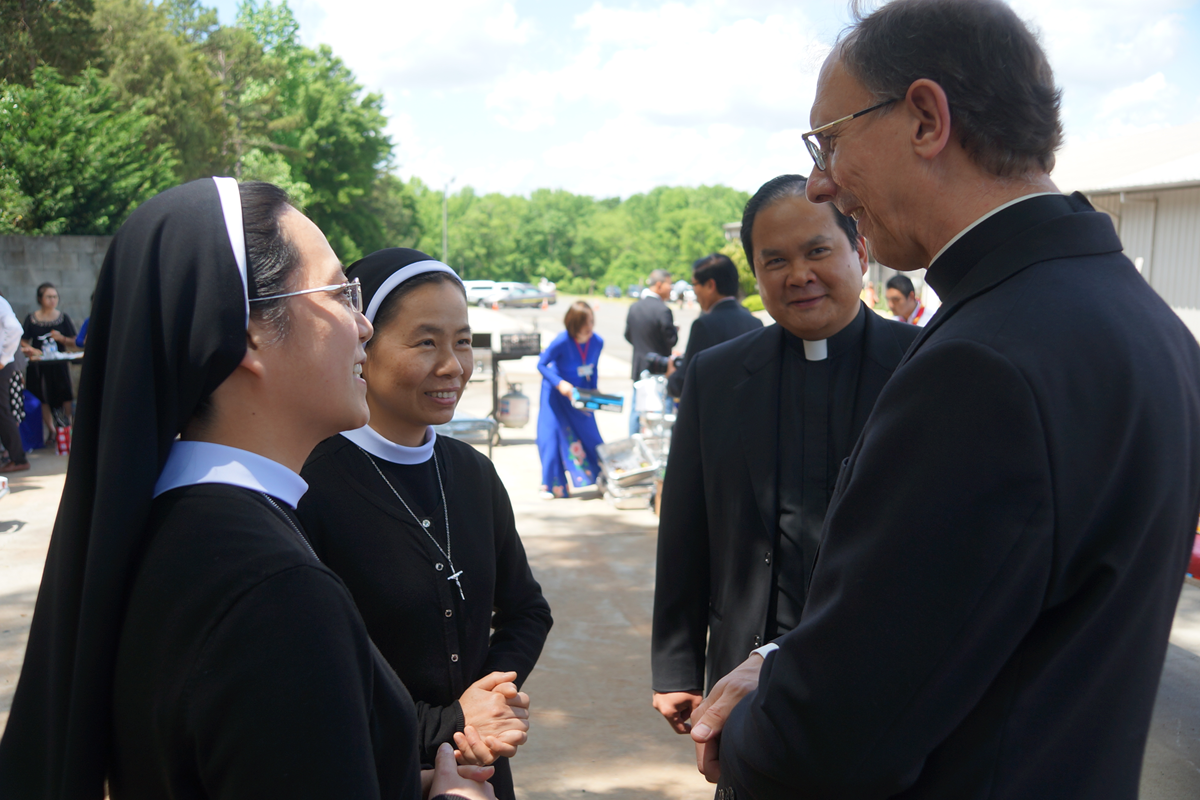 CHARLOTTE — “On Tuesday, May 1, of this past week, the Church around the world celebrated the feast of St. Joseph the Worker, which gives us the opportunity to come together to celebrate our patron saint. But did you realize that this past week there was another date which is significant for St. Joseph Parish? This past Wednesday, May 2, was the 14th anniversary of the dedication of this parish church.”
CHARLOTTE — “On Tuesday, May 1, of this past week, the Church around the world celebrated the feast of St. Joseph the Worker, which gives us the opportunity to come together to celebrate our patron saint. But did you realize that this past week there was another date which is significant for St. Joseph Parish? This past Wednesday, May 2, was the 14th anniversary of the dedication of this parish church.”
Bishop Peter Jugis thus began his homily during a special Mass May 6 at St. Joseph Vietnamese Church in Charlotte, commemorating the church’s dedication in 2004 – one of the first Bishop Jugis presided over after being installed as the Bishop of Charlotte.
Addressing more than a thousand faithful who filled the pews and overflowed into the narthex, Bishop Jugis said he remembered very well that important date, “a beautiful day,” when the church was solemnly dedicated to God under the patronage of St. Joseph.
“It was a wonderful day of celebration for the whole parish. Many of you were probably here for that Mass of Dedication. Here we are, together again, in the Easter season, to celebrate our Catholic faith and to honor the great St. Joseph,” Bishop Jugis said.
“Every week we come together to this altar to celebrate Jesus’ great love for us in the sacrifice of the Eucharist,” the bishop continued, emphasizing the day’s Gospel reading in which Jesus gives His disciples the commandment to love one another, a command He gave at the Last Supper.
“The Eucharist is the gift of His great love,” he said. “The Eucharist helps us grow continually in our love for God and our love for others. Jesus in the Eucharist unites all of us in love; we become one in Him.”
Recalling the prayers of the dedication Mass, the bishop said that the parish’s prayers are being answered and its members are now witnessing the fruits of God’s blessings, because “we are growing together in love.”
He prayed, “At this celebration today, let us ask St. Joseph to continue to bless this parish with His protection, His love and His prayers. And let us also ask the Blessed Mother to bless us with her powerful prayers. May all of you continue to grow together in God’s love. May you fulfill Jesus’ command to love one another as He loved us, and thus build up this parish’s family in love.”
Father Tri Truong, pastor, credited the commitment, love and personal connection Bishop Jugis has had with the Vietnamese parish.
“When Bishop Jugis became bishop, this was the second church he dedicated as bishop in 2004,” Father Truong noted. “And then in 2007, Bishop Jugis elevated this community to a parish. Also, it was Bishop Jugis who blessed the Stations of the Cross outside. And it was Bishop Jugis who blessed the statue of St. Joseph for us, too. So basically, what we have here is because of our beloved bishop – so thank you, Bishop. Thank you very much,” he said.
The anniversary celebration included an outdoor procession before Mass, when hundreds of faithful and delegations of the parish’s ministries processed around the church carrying a statue of their patron St. Joseph. After Mass, parishioners enjoyed a generous feast of traditional Vietnamese food.
 Jeremy Icard, parishioner and parish council member of St. Joseph Church, said he was happy to participate in the life of the parish and see how it has grown over the years. Married to a woman of Vietnamese origin, Icard said he learned the language and, with his wife and children, has become fully integrated into parish life at St. Joseph Church.
Jeremy Icard, parishioner and parish council member of St. Joseph Church, said he was happy to participate in the life of the parish and see how it has grown over the years. Married to a woman of Vietnamese origin, Icard said he learned the language and, with his wife and children, has become fully integrated into parish life at St. Joseph Church.
“We live in Concord,” he said, but his family makes the long drive to the southwest Charlotte parish every week so that they can celebrate their Catholic faith, keep alive their Vietnamese heritage and language, and build relationships with others in their parish family.
Paul Tran, also a member of the parish council, said this date is a milestone for the entire parish community.
“We came to this property 20 years ago,” Tran said. “This was a long but a very blessed journey. We built a new church, we built a family center, and we are growing.”
The parish also honored Father Truong’s 10th anniversary of priesthood ordination, which is coming up in June.
— Story and video by César Hurtado, Hispanic Reporter; photos by John Cosmas, Catholic News Herald
 CHARLOTTE — Father Timothy Reid, pastor of St. Ann Church, led parishioners in praying the Divine Mercy Chaplet after the 10:30 a.m. Mass April 8. The parish marked the fourth anniversary of the death of seminarian Michael Kitson, a parishioner who passed away in the early hours of Divine Mercy Sunday in 2014. His parents, Nancy and Michael Kitson (pictured at right), set up an endowment in their late son’s name to assist seminarians in the Diocese of Charlotte.
CHARLOTTE — Father Timothy Reid, pastor of St. Ann Church, led parishioners in praying the Divine Mercy Chaplet after the 10:30 a.m. Mass April 8. The parish marked the fourth anniversary of the death of seminarian Michael Kitson, a parishioner who passed away in the early hours of Divine Mercy Sunday in 2014. His parents, Nancy and Michael Kitson (pictured at right), set up an endowment in their late son’s name to assist seminarians in the Diocese of Charlotte.
— SueAnn Howell | Catholic News Herald
 MARION — Father Carl Kaltreider, parochial administrator, led the congregation Sunday afternoon at Our Lady of the Angels Mission in reciting the Chaplet of Divine Mercy, followed by the Litany of Divine Mercy and concluding with the reading of a message on Divine Mercy by St. John Paul ll.
MARION — Father Carl Kaltreider, parochial administrator, led the congregation Sunday afternoon at Our Lady of the Angels Mission in reciting the Chaplet of Divine Mercy, followed by the Litany of Divine Mercy and concluding with the reading of a message on Divine Mercy by St. John Paul ll.
— Giuliana Polinari Riley | Catholic News Herald
 HUNTERSVILLE — Parishioners at St. Mark Church prayed the Divine Mercy Chaplet in English and Spanish on Divine Mercy Sunday. The day also included a presentation by Father John Putnam entitled “St. Faustina and Spiritual Warfare,” followed by Benediction and Exposition of the Blessed Sacrament. Father Brian Becker, parochial vicar, also gave a reflection in English and Spanish.
HUNTERSVILLE — Parishioners at St. Mark Church prayed the Divine Mercy Chaplet in English and Spanish on Divine Mercy Sunday. The day also included a presentation by Father John Putnam entitled “St. Faustina and Spiritual Warfare,” followed by Benediction and Exposition of the Blessed Sacrament. Father Brian Becker, parochial vicar, also gave a reflection in English and Spanish.
—Photo provided by Amy Burger


